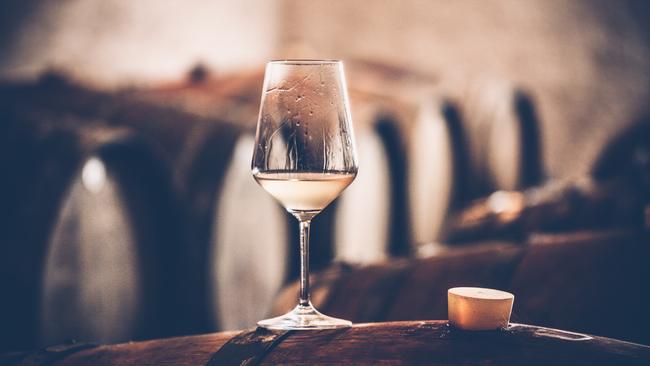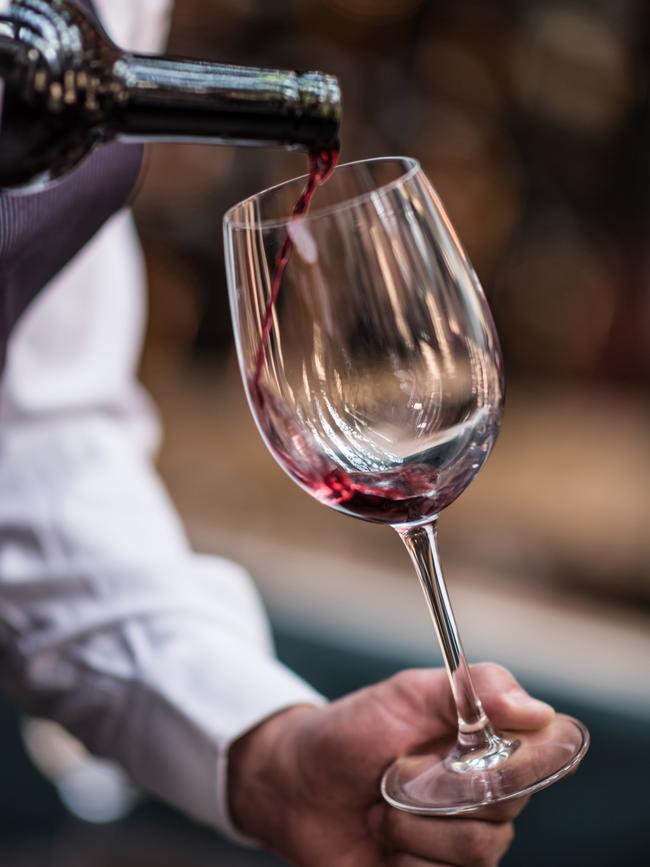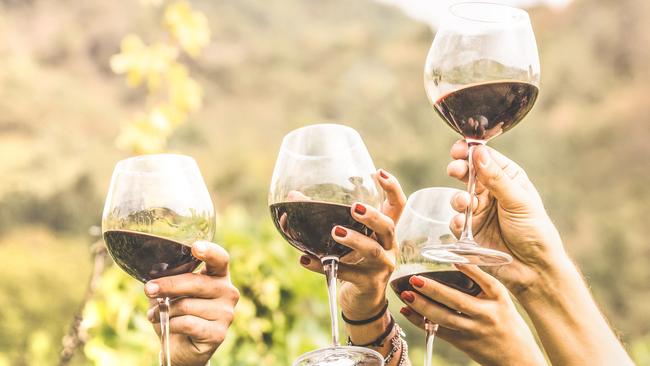Why wine is so bad for your diet
From its ability to inhibit fat burning to its appetite-boosting properties, alcohol’s a disaster for anyone who wants to shed kilos.

The pandemic has not been good for our alcohol intake. Results of a recent survey conducted by Opinium on behalf of the charity Drinkaware found that about two in five (38 per cent) of people on furlough and a third (33 per cent) of parents with at least one child under 18 drank more alcohol during lockdown than they normally would. Not surprising, you might think, but a sobering thought is that even if your alcohol intake inched up in fractions, the likelihood is your waistline will be showing the effects.
In a large study involving 14 million men and 12 million women that was presented at the virtual European and International Congress on Obesity last week, researchers warned that a daily tipple can pave the way to significant weight gain.

Men who drank half a glass of wine a day or a quarter of a pint of beer a day were found to be 10 per cent more prone to obesity and its related health problems, including high blood pressure and metabolic syndrome, linked to high blood sugar, cholesterol, and an increased risk of heart attacks and strokes.
Drinking more than that (one or two glasses of wine or up to a pint of beer) was associated with as much as a 25 per cent greater likelihood of obesity compared with men who never drink.
The findings for women showed that, while an occasional drink offered some protection against metabolic syndrome, half a glass of wine a day still raised the odds of obesity by 9 per cent, two glasses of vino by 22 per cent.
Can that little really make that much of a difference? Dr Duane Mellor, a dietitian and senior teaching fellow at Aston University medical school, points out that the study was carried out in Korea (at the National Medical Centre in Seoul) where there are “cultural differences in drinking patterns that mean results might not be replicated exactly in the UK”, but even so he says they are probably not far off the mark. “Drinking is never going to be good news for your weight,” Mellor says. Here are the reasons a drink won’t help you to shift the pounds:
IT’S PACKED WITH CALORIES . . .
With seven calories in every gram of pure alcohol, it is easy to rack up a considerable number on a night out (or in). “Alcoholic drinks have other ingredients such as fruit juice, cream, flavourings, syrups or sugar that add more calories per serving, making it easy to consume more than you realise,” Lucy Holmes, the director of research and policy at Alcohol Change UK, says.
A single gin and tonic comes in at about 97 calories while a double has 149, the calorific equivalent of five teaspoons of peanut butter or a strip of milk chocolate, and a small glass of wine (175ml) contains 160 calories. Two small bottles (330ml) of beer provide 284 calories, the same as a cheeseburger, a pint of cider has 216 calories, as many as a sugar doughnut, and sipping a single alcopop (170 calories) will mean you consume the same amount of calories as in a slice of ham and pineapple pizza.
“Alcohol as a substance contains calories and not much else in terms of nutritional value,” Holmes says. “It is this contribution to excess energy intake that makes it most problematic in terms of weight gain.”

. . AND SUGAR
According to Drinkaware, alcoholic drinks account for 10 per cent of the daily intake of added sugar for 29 to 64-year-olds in the UK, yet the charity says that most people don’t think to factor in drink when calculating sugar intake. All alcoholic drinks contain some sugar, but fortified wines, sherries, liqueurs and cider contain particularly high amounts.
Among the worst offenders are “ready to drink” pre-mixed spirits. A survey of 202 products by Action on Sugar at Queen Mary University of London in January found many to be unnecessarily high in hidden sugar, but that only 14 products (9 per cent) had sugar information on the pack. Some premixed cocktails - including TGI Friday’s Pink Punk Mojito and Passion Fruit Martini - contained the equivalent of 12 teaspoons of sugar per 500ml serving, while an Archers Schnapps and Lemonade and a Malibu Cola contained eight teaspoons per 250ml serving, more sugar than nine custard cream biscuits.
IT SWITCHES YOUR BRAIN INTO HUNGER MODE
Plenty of research suggests that alcohol disrupts the body’s perception of hunger and satiety, which partly explains why an attack of the munchies is so common after a few drinks. A study at the Francis Crick Institute in London found that this might be down to the way alcohol switches the brain into starvation mode, sending signals that you are hungry even if you’ve eaten. In their study on mice, the researchers found that in animals injected with alcohol there was a spike in activity of agouti-related peptides, or AGRP, brain neurons that drive food intake and which caused the mice to overeat. When the AGRP cells were blocked by the scientists the mice didn’t overeat after the alcohol injections, suggesting that it was drink that triggered the appetite response.
“If there is a hunger response it is exacerbated by the fact that alcohol doesn’t make you feel full,” Holmes says. “And because of this people are not good at regulating liquid calorie intake.”
You could consume 25 per cent more calories if you drink before dinner Even if you restrict yourself to a glass or two of wine before a meal, it could backfire for your waistline in what scientists call the “aperitif effect”. “There’s evidence that a single drink makes us think a food tastes better,” Mellor says. “And we seem to enjoy food more after a drink.”
Researchers at Glasgow Caledonian University showed how potent the effects can be when they asked participants to drink either 375ml of cabernet sauvignon shiraz 20 minutes before a two-course lunch of garlic bread and pizza or 125ml of red wine with the starter and 250ml of red wine with the main course. A control group had no wine, but were given no restriction on the food they consumed.
Results showed that 25 per cent more calories were consumed when the wine was taken as an aperitif and energy intake was 22 per cent higher when the alcohol was consumed during lunch compared with the control group. Over the next three days, the wine drinkers also ate more, but the researchers said “the effects of wine on appetite are immediate and stimulate food intake early in the meal”.

A DRINK CAN DERAIL YOUR DIETARY RESOLVE
Alcohol is “disinhibiting”, meaning it melts away our dietary resolve. “It’s a very effective way of making sure you eat more,” Mellor says. Last year a review of 22 clinical studies published in the British Journal of Nutrition by nutritionists at Monash University in Australia found that even “a relatively modest alcohol dose may lead to an increase in food consumption” and that, typically, most drinkers don’t compensate by eating less at the next meal. “We are certain that alcohol inhibits the control centres of our brains and know that decision making is impaired after even a few drinks,” Holmes says. “At the very least, having a drink could inhibit your ability to say no to food.”
ALCOHOL SLOWS FAT BURNING
Only a tiny fraction of the alcohol you drink ends up being stored as fat. However, alcohol affects the body’s use of fat in other ways, suppressing fat oxidation as the body works to metabolise alcohol and remove it from the body. “As a result of complex metabolic pathways, it inhibits the breakdown of fat,” Mellor says. “This means alcohol can reduce the amount of fat your body burns for energy.”
Just two drinks of vodka and diet lemonade were shown to temporarily reduce fat lipid oxidation by more than 70 per cent in one study. “Everyone is different and our body size and weight influences metabolism,” Mellor says. “But even moderate drinking can lead to weight gain.”
THE TIMES





To join the conversation, please log in. Don't have an account? Register
Join the conversation, you are commenting as Logout